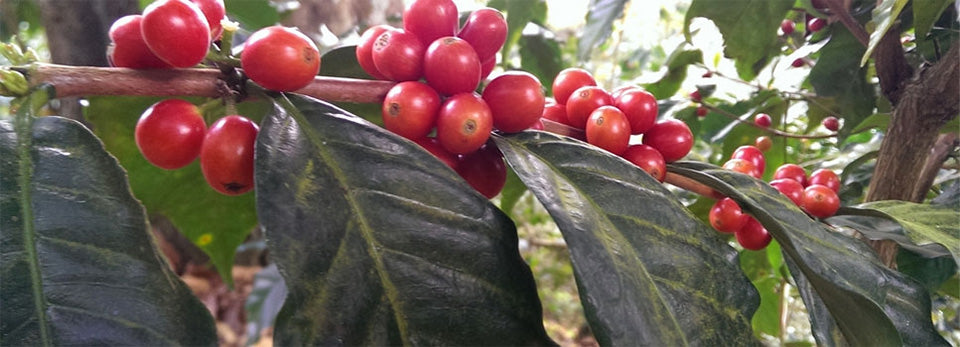Rwanda Jarama Kivubelt
Rwanda Jarama Kivubelt
Roasts and Ships Mondays through Thursdays.
Couldn't load pickup availability
Characteristics
Light
Clean
Orange Blossoms, Raspberries, Caramel
Smallholder Farms
Smallholder Farmers
1933 Masl
Mixed
Washed
Gihombo Sector, Nyamasheke District, Rwanda
Story
Kivubelt was established in 2011 by Furaha Umwizey, after returning to Rwanda with a master’s degree in economics from Switzerland. Born and raised in Rwanda, Umwizey’s goal with Kivubelt is to create a model coffee plantation, as sustainable in agriculture as it is impactful in local employment and empowerment.
Kivubelt began with the acquisition of 200 scattered acres of farmland in Gihombo, a community in Rwanda’s Nyamasheke district that runs along the central shorelines of Lake Kivu. Under Umwizey’s leadership, Kivubelt has planted 90,000 coffee trees on their estates, which now employ more than 400 people during harvest months and is a kind of coffee vocational school for local smallholders interested in improving their farming.
“People’s Farm” Coffees & Processing
After establishing their own estates, Kivubelt acquired two washing stations in the immediate area, Murundo CWS and Jarama CWS. Combined, these 2 stations service more than 500 smallholders coffee farmers in the region. 60 of these smallholders make up the Kadobogo community, who, combined, grow 20,000 coffee trees on a total of 8 hectares of farmland, ranging between 0.15 and 0.8 hectares apiece—indeed some of the smallest coffee farmers on the planet.
Kivubelt offers quality premiums and training programs for participating farmer families. Smallholder coffee processed at the washing stations has come to be affectionately known as “People’s Farm” coffee, to acknowledge the teamwork required of smallholders and processors who, when acting together, can have the same commanding presence as a larger single estate. Kadobogo is organized into 3 different sub-groups, who receive a rotation of trainings on things like best farming practices and financial literacy, all financed and organized by Kivubelt. In addition, 20,000 coffee seedlings are distributed among Kadobogo farmers each year for free, to encourage farm renovation.
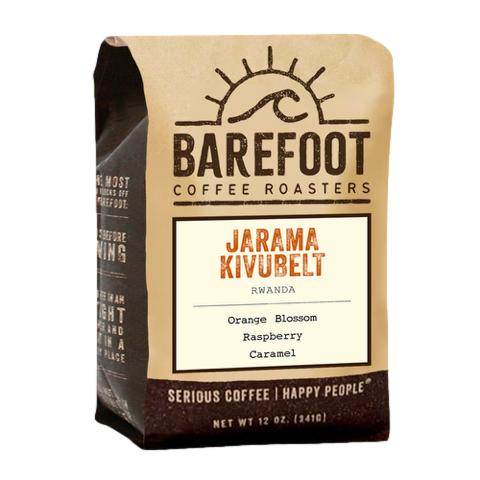
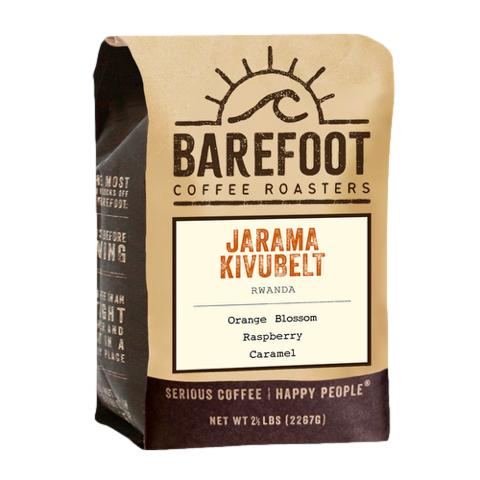
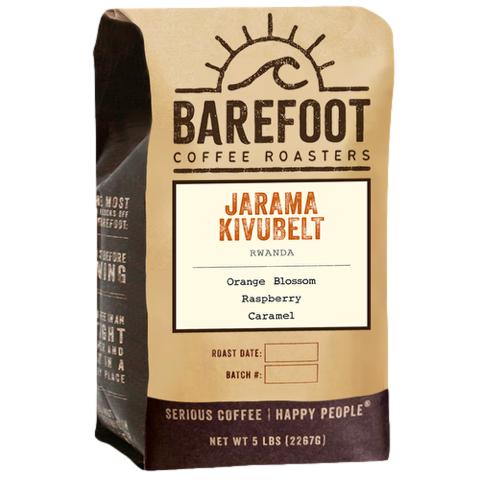
Barefoot Coffee
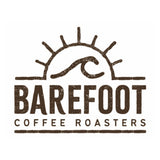
2003
Jon and Jillian Dolin
